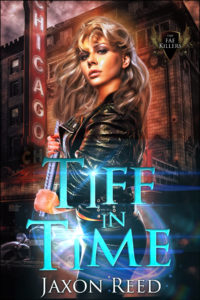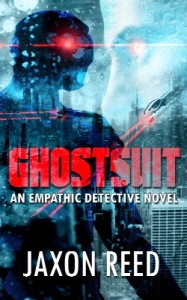
I think Kindle Scout is a great avenue for authors to pursue. In the process of my own campaigns, I’ve come to know several other authors. I’ve been selected twice and honored to promote many books, Scout titles and otherwise, on my promotion site readper.com. Throughout, in both running Scout campaigns and observing the campaigns of others, I’ve had the opportunity to learn some things and pick up what I think is useful information.
The purpose of this post is to encapsulate some of the things I’ve learned and pass them along to others who might be considering Scout for their own books. I’m focusing here on authors who are primarily used to self-publishing, with Scout being their first experience with a publisher.
With that in mind, to win a Scout contract authors should consider the following points. Some of these points are also applicable to self-publishing as well.
1. When submitting to any publisher, realize it’s not about you.
The first thing to do when coming from a self-publishing mindset and submitting to a publisher, is to accept that it’s not about you. Like when a husband and father comes to the realization family life is not all about him, working with a publisher should lead you to the realization they have needs too. Sometimes those needs don’t line up with what you have to offer. When you submit a book to a publisher, if they don’t need another in that genre at the moment, if they published one similar to yours a month ago, or if they just don’t particularly care for your manuscript, it’s not about you. So, don’t take it personally if they say “no thanks.”
2. Find out what the publisher wants.
Obviously, publishers want titles that sell. Amazon has some experience selling books, and in general, Amazon imprints like Kindle Press know what sells. We can glean some clues as to their thought processes by looking at the requirements for Kindle Scout titles. They want books in high-performance genres that are at least 50,000 words, and will be typically priced around $2.99. They are focused on quality covers and blurbs as well as strong openings that draw in readers.
Finding out what a publisher wants and tailoring your manuscript to meet their standards helps when you self-publish, too. If it’s working for a publisher, it should work for you. Strong covers, vibrant genres, and good price points are “universal truths” you can apply to self-publishing.
3. Don’t skimp on the cover.
Speaking of covers, when self-publishing or submitting to Scout, go on and spend the time and money for a quality cover that will attract readers. Your cover is the first thing potential buyers will see. Take a look at the top sellers in your genre for an idea of what a good cover should look like, then spend time on sites like 99designs and find something comparable or an artist willing to work with you. The cover may end up as one of your biggest expenditures, often second behind editing costs, but it also pays the most dividends.
4. Write a fantastic blurb.
One of the great things Scout does is force you to write a condensed blurb and one liner for your book. These require you to summarize things in a hopefully compelling way. Don’t be afraid to ask for help with your blurb. Start a thread on The Writer’s Cafe on kboards (be sure and join the discussion on the Kindle Scout thread while you’re there), or reach out for help in one of the many author community pages on Facebook. There are also services certain editors offer, where for a nominal sum (usually $20-30), they’ll read your book and write a blurb for you.
Whatever you do, spend the time and effort to craft the best one you possibly can before submitting. Blurbs are the second things potential readers will see when looking at your book.
5. Pay for a quality editor.
Yes, a publisher will have your work edited if they accept it. But you want to make a great first impression. You wouldn’t typically show up on a first date in sweatpants and t-shirt, then take a shower and change clothes later. No, you try to look your best from the start. Treat your book the same way before submitting it for consideration. Go on and pay for a good editor. If your book is not accepted by Scout, an editor’s work is not wasted money. You can self-publish it later if you want, and have a well-edited book ready to go.
6. Promote your Scout campaign, but don’t go overboard.
Another great thing about Scout is it gives you an opportunity to spread the word about your upcoming book to a lot of people. I run a promotion site, so of course I’d love if you used my services. But, I don’t recommend going crazy on Scout campaign promotions. For one thing, time spent in Hot and Trending is not the primary consideration for selection. The most important elements of your Scout campaign are (in my opinion), quality of the story followed by the cover, the blurb, and the compelling nature of your first chapter.
Take time to nominate a title on Scout and go through their survey for the book. It shows you right there in the survey what the Scout people think is important. The survey will ask you to rate things like the cover, the blurb, the text. Remember, everybody who nominates your book will take the same survey, and those statistics are likely to be examined at some point in the selection process.
If your story is good and the editors like it, they’ll select it no matter how much time it spent in Hot and Trending. And if your cover is good, people will click over to check it out without you having to spend a lot of money to convince them to click. And if the blurb and first chapter are good, they’ll be more likely to nominate you after they get to your page. So, product quality always comes before quantity of advertising when campaigning, in my opinion.
7. Spend more money on promotion after the campaign.
Whether your title is selected for publication by Kindle Press or not, after it’s published is the time to spend serious money on advertising. During the Scout campaign your ads buy attention. After it’s published, your ads buy purchases. Purchases return far more on your ad dollars than attention. Therefore, the bulk of your spending should be reserved for after the title is released, whether it’s published by Kindle Press or not.
Again this is just my opinion, but there is little point in spending thousands on campaign ads and having nothing to show for it later. If you glean some marketing materials like sign ups for your newsletter from the campaign, that’s good. But especially if you are a novice at marketing, don’t spend the bulk of your ad budget on the campaign. I think it’s better to spend in the three figures during the campaign, and in the four figures after release (or whatever amount you feel comfortable spending so long as the proportion remains heavier on the after published side rather than the campaign side).
But wait, you might be thinking. Why should I spend money advertising after Kindle Press selects my title? Won’t Amazon’s marketing machine start working for my book? Yes it will, but even Amazon’s marketing machine can benefit from some well-placed ads. If you stack some promotions the first week and month after your title debuts, you can leverage Amazon’s algorithms in your favor. Combining that with Amazon’s marketing muscle will help ensure maximum success for your new book.
Conclusion
Those are some of the things I’ve learned in my Scout campaigns and in helping promote the campaigns of others. I hope you found the information useful. If you’ve never submitted a manuscript to Scout, going through the process is enlightening, regardless of selection.
JR









